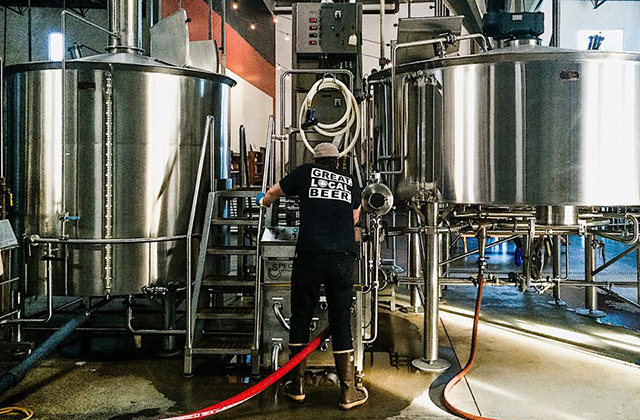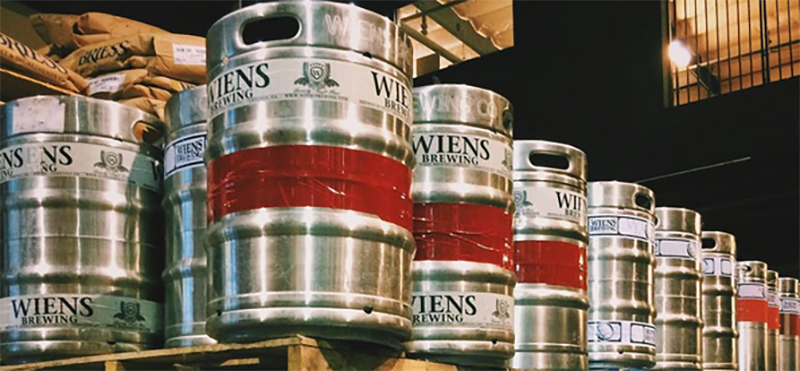
Although he had operated companies before and had to deal with insurance in the past, Steve Dunkerken was glad he had gotten a check-up on his brewery’s plan a little more than a year after opening.
A spoiled batch of beer and faulty equipment — meaning a loss of tens of thousands of dollars — for Ritual Brewing in Redlands, California could have hampered the operation of the now three-year old brewery, only then in its earliest stage. But Dunkerken had switched policies to include product loss insurance, something they had not had when they opened.
“Once you get going, you get so busy and it’s hard to take the time to read the policy and the coverages and ask the questions you need to ask and understand the coverage,” he said. “It’s something I would encourage people to look at what is in the fine print. Sometimes people just think since they are covered on the big shit, they kind of let things slip through the cracks. Once I sat down and got the details on enhancing the coverage specifically for our business and made the switch over. It was good news for us since we had to draw on it within the first year.”
Richard Beall of Beall Brewery Insurance has worked in the insurance world for more than 30 years and has helped hundreds of clients make the right moves to find the right coverage for their size and type of facility at the time and for the future. Beall started a brewery division of his insurance group in 2011 and has made a strong push to work with breweries over the last two years.
Usually fault number one, he said, when looking for insurance is to go to a trusted source, like a friend, acquaintance or local-based agent that does insurance for home or life. It’s not the same animal, he pointed out. A specialized brewery insurance agent can handle the ins and outs of what breweries need. “Those agents may not have any experience,” Beall said. “I may come in a year after they have started and their insurance is just not done properly. But this market has evolved. The agents that specialize in it do a much better job because they understand the industry very well and know the exposures and they have programs that certainly can cover those exposures.”

Policies can change over the years as a brewery grows. A small taproom may grow into a brew pub. Even something like adding a credit card machine could mean an addition of cyber liability to the policy. A nano brewery may upgrade to a larger system and start canning and self distributing. The exposures can alter immensely. Just as any change to a brewery’s way of doing things and switching protocols should mean a check of insurance policies should be in order as well. Even something as simple as bringing a keg of beer to a local festival changes what should be covered, Beall said.
“From the nano brewer, they don’t have the same exposures as to a brewer with a larger system with more production,” he said. “Nanos are focused on the facility and where they are at and so we are looking at their location, their taproom. When they expand from kegs and delivering locally, they have a limited number of employees which means limited exposures at that point. When they expand and grow, they are adding distribution and looking at bottling or canning. Values go up higher.”
Jeff Wiens, the General Manager of Wiens Brewing and Winery in Temecula, California, had quite the background with insurance because of his family’s winery. Opened in 2012 after years in the wine business, Wiens Brewing produced 1,500 barrels a year and Wiens said that the cost of his brewery’s insurance has been fairly comparable to the winery’s insurance. He’s kept track of new equipment purchases and other additional risks (such a vehicles for delivery) on a spreadsheet on his computer and reports to Beall — who he worked with before because of the winery — whenever a change is made, usually as a yearly checkup.
It was a whole new ballgame for Beth Bechtel, who’s Bear Island Brewing in Boise, Idaho. A retired Navy bomb demolition expert, her and her husband converted the garage of their house into a three-barrel production facility for self distribution of the 200 bbls that were produced in 2015.
Bechtel had to scramble to find not just brewery insurance, but also home insurance after she was told by her previous carrier that they would lose the home insurance by opening the brewery since it was policy to not allow businesses in the home. She also jokingly said they thought she was going to blow up the house by starting a brewery in the garage. “There is no way it’s going to blow up, it’s my expert opinion,” she said with a laugh.
Bechtel was able to get insurance and knew she needed more than just liquor liability. “You don’t have to insure your brewery,” she said, “but you should because it’s a lot of equipment.”
She added that finding affordable insurance is helpful also. After being denied by larger companies, she started to get frugal and wise. “I don’t want to pay a ridiculous amount for insurance, especially if I don’t have to,” she said. “I do want to spend the right amount for what I need to be covered for.”
Beall agreed. “If someone is real small there are programs for that,” he said, “it can be cost effective but not be as broad. You don’t want to over insure them.”
Beall added that working with breweries and explaining coverages may be tedious, but most brewers and owners have been very receptive. “They want to learn, they want to understand and definitely want to take care of their exposures,” he said. “They don’t understand it and rely on our expertise to help from the beginning and through the growing process. We get a wide variety of people and they are looking for that expertise and they really appreciate the experience on our side.”


Be the first to comment